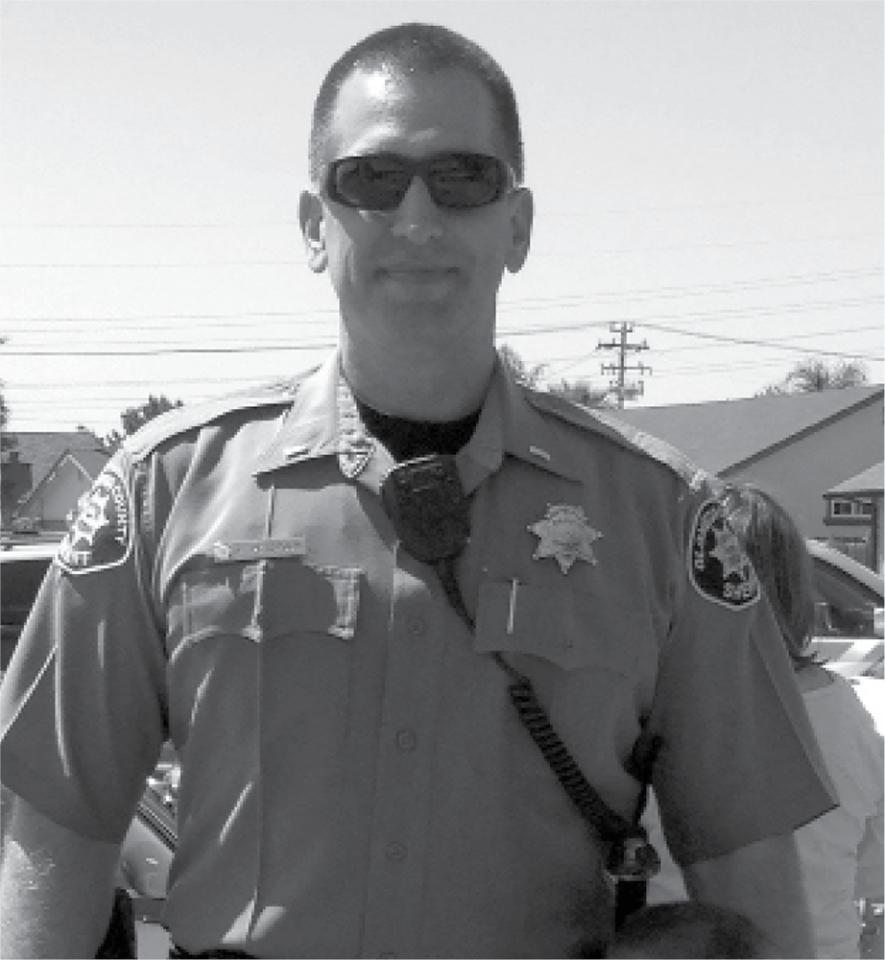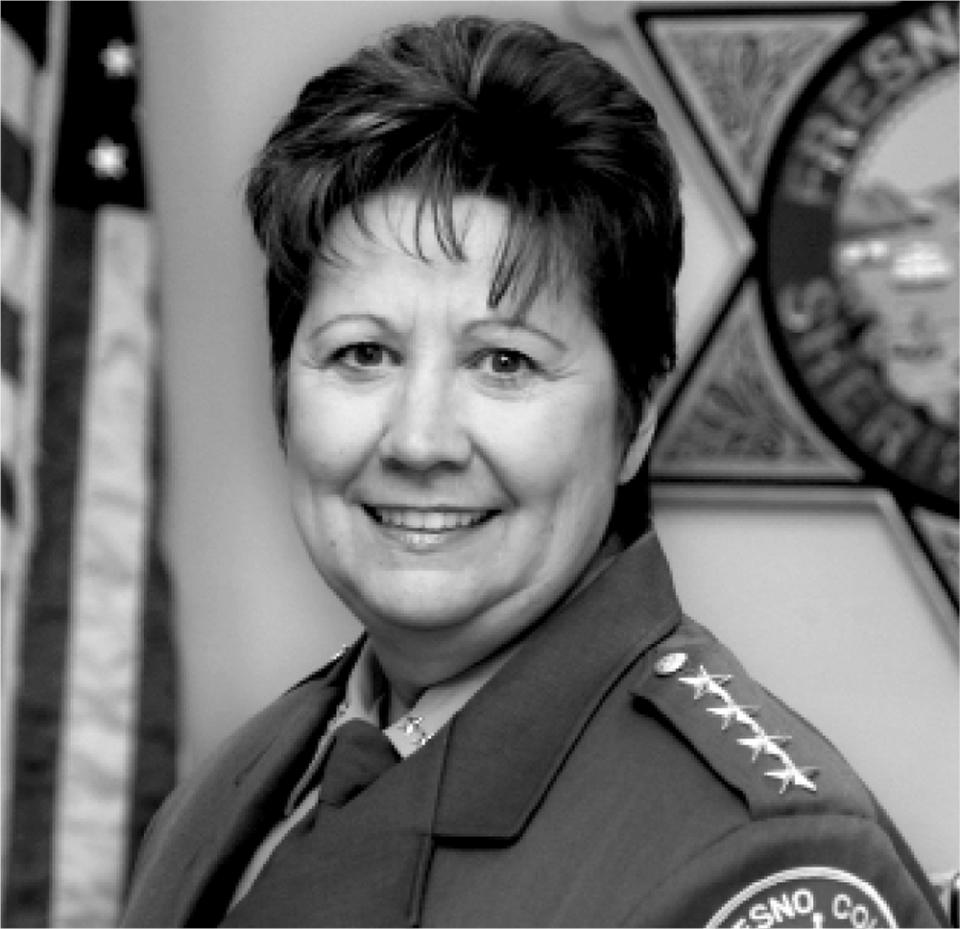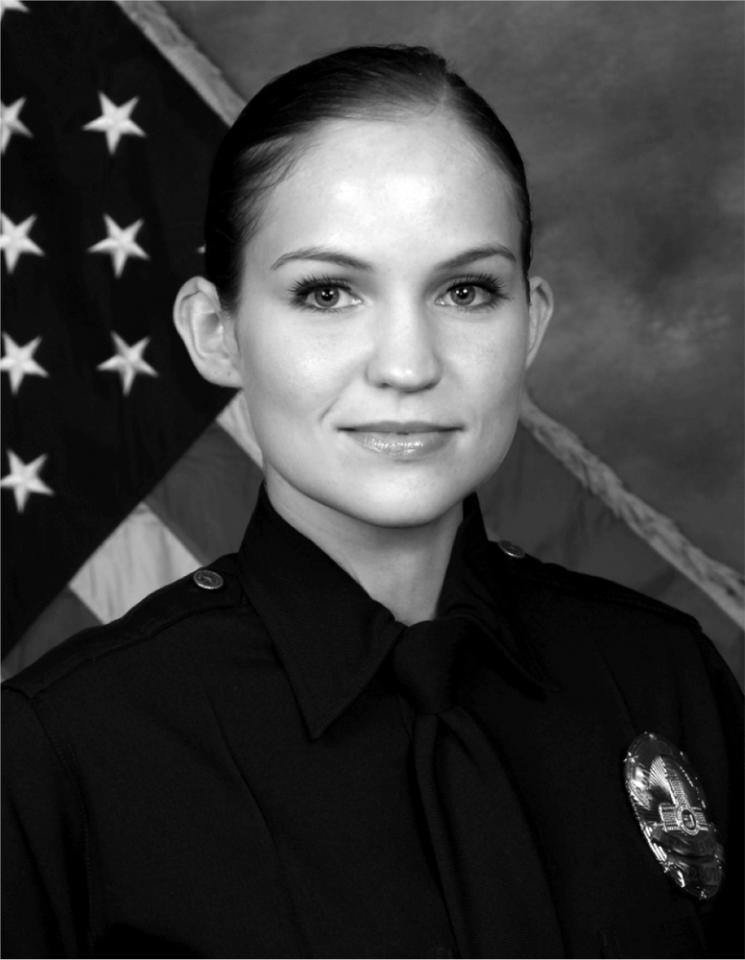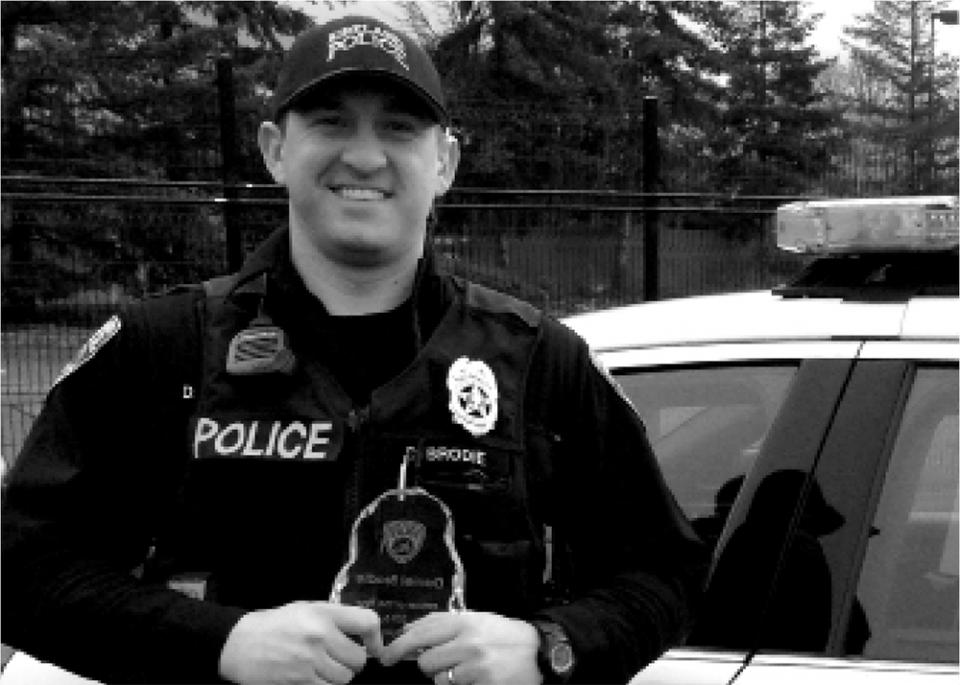Law enforcement professionals build peace in their communities
Few Fresno Pacific University alumni apply their education in more high-stakes situations than those in law enforcement. They mediate neighbors’ disputes that can turn violent. They counsel the mentally ill. They rush into harm’s way.
“We are very proud of our graduates who, as law enforcement professionals, are now peace builders in their communities,” says Ray Nickson, Ph.D., assistant professor of criminal justice. “They fulfill their duties with honesty, integrity and courage in challenging circumstances.”
Shawn Peterson had arrested a man in the small Oakland apartment for selling methamphetamine. Now Peterson faced a Solomon-like choice about the fate of this man's children, who hid in the shadows.
The kids—ages 5 and 7—could end up stuck in foster care, or remain in the warm embrace of their mother. The mother’s role—if any—in the drug dealing was crucial. “It would have been very easy to walk in and be very check-list oriented,” he says. “Take those kids to CPS [Children’s Protective Services]. Interrogate the woman. Take physical evidence. And go home, leaving them in disarray.”
But Peterson wanted to do the right thing. So he spent extra time and dug deeper that night with the alleged dealer and his wife.

Shawn Peterson
Life’s complexities
Peterson, who attended FPU from 1991-1995, has worked for the Alameda County Sheriff’s Office for the last 20 years, rising to the rank of captain. He is retiring because of a serious back injury sustained in a fight with an armed suspect.
It was Peterson’s experience at FPU—especially on the soccer team—that taught him the complexity of life and reinforced his natural empathy. “I broke bread, played soccer and studied with people who had come from tough environments,” he says. “I learned that not everyone is going to fit in your box of expectations. It provided me an ethical and moral platform to do my job.”
From that platform, Peterson decided the mother wasn’t involved in dealing. So he left the children with her. It was only one decision in one case, but police decisions can reach far into people’s lives. Knowing that never stopped Peterson from doing his duty, but it made him think deeply about his actions.
He checked in periodically on the woman and her children, partly for reassurance that he’d made the right decision. She divorced her husband because of the drug dealing and “thrived” in a new life with the kids, Peterson says: “I gave her the opportunity to figure out what she was going to do. If I hadn’t gone to a school where empathy was important, I think I would have seen things differently.”

Margaret Mims BA ’95
Managing Change
The FPU faculty member wrote his prediction for Margaret Mims (BA ’95) on a small note card when she graduated. He said she would become the first female sheriff of Fresno County.
Then a sergeant with the Fresno County Sheriff’s Office, Mims dismissed former faculty Orrin Bowman’s vision for her. “I had absolutely no desire to be sheriff,” Mims says. But desires can change. Today, Mims is finishing her third term in the position, a job in which she oversees a budget of about $200 million and nearly 1,300 employees.
Her degree in management and organizational development helped Mims earn promotions before she ran for sheriff in 2006. “In law enforcement, your agency will train you in all things related to criminology, but as you promote, you need to have expertise in actual management,” she says. FPU taught Mims, among many things, to manage organizational change—a constant in today’s fast-paced world—knowledge she quickly put to use.
In the early 1990s, Mims led the sheriff’s domestic violence, sexual assault and child abuse unit, instituting changes to speed the arrest of suspects to improve public safety. However, some detectives objected, believing they could investigate more cases while other sheriff’s personnel picked up suspects.
Mims held to her position, drawing on experience from role playing in her FPU coursework about implementing change. Her point to her employees was clear and consistent: “We don’t close cases until we have the bad guy in custody. We don’t want to give suspects the opportunity to hurt someone else.”

Megan Webb (BA '13)
Life on the beat
As a patrol officer for the Los Angeles Police Department, Megan Webb (BA, ’13) has handled everything from weaponized cat poop to a suicidal 14-year-old.
She deals with more than 100 people on every shift, and 90 percent of her cases involve conflict resolution. Webb says psychology classes at FPU gave her tools to draw people out and understand their problems. Serving as a resident assistant in the dorms also helped her handle conflict. “A lot of it was just getting roommates to talk out issues,” Webb says. “I was a therapist, essentially.”
The cat poop episode involved placement of flower pots on a disputed property line. Tempers flared, and one neighbor threw poop on the other neighbor’s car. Webb mediated, and neither neighbor called police again. “I take that as a good sign—or a sign that one of them moved,” she says.
On a more serious note, the mother of the 14-year-old called police when the girl threatened to kill herself over family problems. Webb sat down with the agitated girl in her bedroom, and they talked for 40 minutes.
“In these situations, a lot of it is looking for answers without sounding harsh but coming off as another human being instead,” Webb says. “I didn’t want this girl to feel she was just another person I had to deal with.” After the girl calmed, Webb and her partner made sure a doctor evaluated the teenager’s mental state.
“We still see her out in public when we’re on patrol,” Webb says. “She’s happy to say ‘hi’ to us.”

Daniel Brodie (BA '09)
Respect yields results
Daniel Brodie (BA, ’09) eased into a chair across from a drug addict-turned-burglar at the Kirkland, WA, police station. “I know you have a drug problem, and you know you have a drug problem,” he told the man. “But you don’t have to keep looking over your shoulder, waiting for somebody to come find you. You can get ahead of this.”
When Brodie asked for details of the crimes and how to recover the stolen property, the suspect confessed everything. Showing the man basic human respect, both in this case and in a previous one, paid off. “He knew I hadn’t done him dirty before so we could sit down and be real,” Brodie says.
Brodie’s faith—nurtured and strengthened at FPU—guides his work. “Almost every day, I have encounters where my faith and my following the Holy Spirit lead to knowing what questions to ask,” he says. “I get tons of confessions and admissions.”
Brodie learned about authentic relationships with other Christians in class and on the baseball team. In Kirkland, he’s found those relationships at his church, and they’ve helped sustain him through unimaginable job stresses. “You need people in your life who believe in God and trust that the Lord is at the center of things,” he says.
Brodie takes that trust to the streets. “Any call can become a life-and-death situation, and the most important thing is knowing God is in control,” he says. “I pray for wisdom and for favor to make good decisions. I learned that at Fresno Pacific.”
Me
Tell us your story of alumni making a difference in their community at feature.me@fresno.edu


